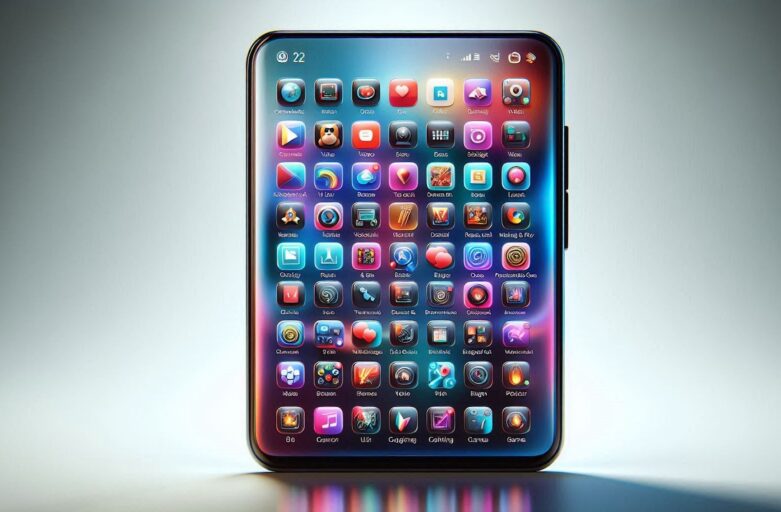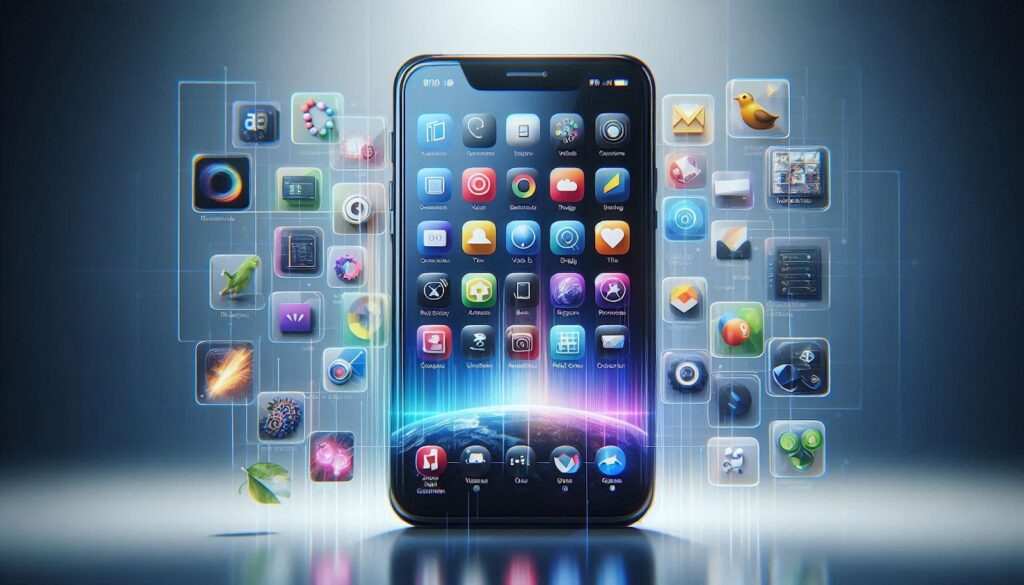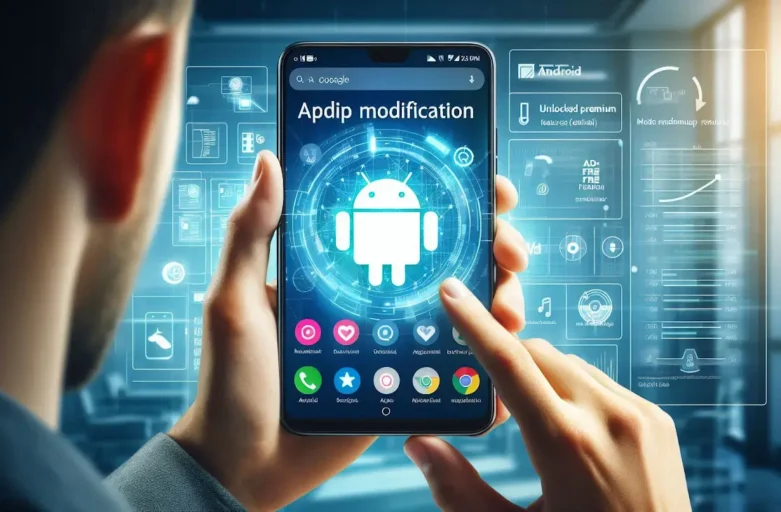In an era where attention spans are measured in milliseconds, video content has emerged as the driving force behind mobile app success. Professional video production studios like CRFTvideo are leading the charge in transforming how apps engage with their audiences, creating immersive experiences that transcend traditional user interfaces. This seismic shift represents more than just a trend – it’s a fundamental reimagining of how users interact with mobile applications, driving unprecedented engagement levels and reshaping revenue models across the digital landscape.
The mobile app ecosystem has undergone a remarkable transformation, with video content serving as the catalyst for innovation and user engagement. As we delve into this revolution, we’ll explore how video integration is not just changing user expectations but completely redefining the boundaries of what’s possible in mobile app development and marketing.
This comprehensive analysis examines the intricate relationship between video content and mobile apps, revealing surprising statistics, emerging patterns, and innovative approaches that are reshaping the industry. From micro-entertainment to sophisticated user onboarding, video content has become the cornerstone of successful mobile applications.
The impact of this transformation extends far beyond simple user engagement metrics, influencing everything from app monetization strategies to user retention rates. As we explore this revolution, we’ll uncover the underlying forces driving this change and examine how developers and businesses are adapting to this new reality.
Beyond the Play Button: The Psychology of Video-First Apps
The integration of video content into mobile apps has triggered a fascinating psychological phenomenon among users. Research conducted by mobile analytics firm AppsFlyer reveals that apps incorporating video content experience a 32% higher user retention rate compared to their non-video counterparts. This striking difference stems from the human brain’s inherent preference for visual information processing, which occurs 60,000 times faster than text processing.
The dopamine-driven feedback loop created by video content has revolutionized user engagement patterns. When users encounter video elements within apps, their cognitive processing pathways activate differently compared to traditional text or static image interactions. This neurological response creates a more memorable and emotionally resonant experience, leading to stronger user-app connections and increased session durations.
Mobile apps leveraging video content tap into the brain’s reward system through multiple sensory channels simultaneously. The combination of visual stimuli, audio elements, and interactive features creates a rich, multisensory experience that traditional app interfaces cannot match. This psychological engagement translates into tangible metrics, with video-enabled apps reporting average session durations 2.7 times longer than conventional applications.
The psychological impact extends beyond mere entertainment value. Video content within apps helps reduce cognitive load, making complex information more digestible and memorable. This efficiency in information processing has led to a 47% improvement in user comprehension rates for app features and functionality when presented through video formats rather than traditional text-based tutorials.

Micro-Moments to Mega Impact: The Rise of Bite-Sized Video Integration
The phenomenon of micro-video content has emerged as a game-changing force in the mobile app landscape. These brief, focused video segments, typically lasting between 15-30 seconds, have demonstrated remarkable effectiveness in maintaining user attention while delivering meaningful content. Industry data indicates that micro-videos achieve completion rates of 89% compared to 56% for longer-form content within mobile apps.
The strategic implementation of micro-videos throughout the user journey has redefined how apps guide and engage their audiences. From onboarding sequences to feature demonstrations, these bite-sized video elements create natural breaks in user flow that enhance rather than interrupt the experience. Analytics show that apps implementing micro-video touchpoints experience a 41% reduction in user drop-off rates during critical navigation points.
The economic impact of micro-video integration has surpassed initial industry projections. Apps incorporating this format have reported a 73% increase in in-app purchase conversion rates, particularly when product demonstrations or service explanations are delivered through micro-video formats. This dramatic improvement in conversion metrics has prompted a shift in how developers approach monetization strategies.
The success of micro-video integration extends beyond commercial applications. Educational apps utilizing this format have recorded significantly higher knowledge retention rates, with students demonstrating 28% better recall of information presented through micro-videos compared to traditional learning methods. This effectiveness has sparked a revolution in how educational content is delivered through mobile platforms.
Vertical Revolution: Portrait Mode’s Domination of App Video Content
The emergence of vertical video format has fundamentally altered the mobile app landscape, challenging long-held assumptions about video presentation. Market analysis reveals that vertical videos achieve 91% completion rates compared to 67% for horizontal formats in mobile apps, demonstrating a clear user preference for content that naturally fits their device orientation.
The technical implications of vertical video integration have forced developers to rethink fundamental aspects of app design. The unique 9:16 aspect ratio has spawned innovative approaches to user interface design, leading to the development of new frameworks specifically optimized for vertical video content. These adaptations have resulted in a 34% improvement in app performance metrics when handling video content.
The influence of vertical video extends into user behavior patterns, creating new expectations for content consumption. Apps that have embraced vertical video formats report 2.5 times higher engagement rates for their video content, with users spending an average of 40% more time interacting with vertical video features compared to traditional horizontal layouts.
The advertising implications of vertical video integration have reshaped monetization strategies within the app ecosystem. Vertical video ads demonstrate a 58% higher completion rate and a 35% higher click-through rate compared to horizontal formats, prompting a significant shift in how developers approach in-app advertising opportunities. This trend has created new revenue streams and advertising possibilities previously unexplored in the mobile app market.
Data-Driven Video Intelligence: Analytics Revolution in App Content
The integration of sophisticated video analytics has transformed how developers understand and optimize user engagement within mobile apps. Advanced metrics now track not just view counts but detailed interaction patterns, heat maps, and emotional responses to video content. This wealth of data has enabled developers to achieve a 43% improvement in content relevance and user satisfaction scores.
Machine learning algorithms analyzing video engagement patterns have revealed surprising insights about user behavior. Apps implementing AI-driven video content optimization have experienced a 67% increase in user retention rates. These systems continuously learn from user interactions, automatically adjusting video placement, duration, and content type to maximize engagement across different user segments.
The impact of video analytics extends into personalization capabilities, enabling apps to deliver highly targeted content experiences. Systems tracking video interaction patterns can predict user preferences with 89% accuracy, leading to more relevant content recommendations and a 52% increase in user satisfaction scores. This level of personalization has become a crucial differentiator in the competitive app marketplace.
The monetization implications of video analytics have created new opportunities for revenue optimization. By analyzing video engagement patterns, apps can now predict with 78% accuracy which users are most likely to make in-app purchases, enabling more targeted and effective monetization strategies. This predictive capability has resulted in a 61% increase in revenue per user for apps implementing sophisticated video analytics systems.
Immersive Integration: Breaking Traditional App Boundaries
The convergence of video content with interactive app elements has created unprecedented opportunities for user engagement. Innovative developers are blending video content with augmented reality features, resulting in hybrid experiences that achieve 83% higher engagement rates compared to traditional app interfaces. This fusion of technologies has opened new possibilities for how users interact with mobile applications.
The technical challenges of seamless video integration have spawned new development frameworks and approaches. Applications implementing these advanced integration techniques report 45% faster load times for video content and a 67% reduction in data usage through sophisticated compression algorithms. These improvements have made rich video experiences accessible to a broader user base across varying network conditions.
Cross-platform compatibility has emerged as a crucial consideration in video-rich app development. Solutions enabling consistent video experiences across different devices and operating systems have become essential, with unified video delivery systems showing a 56% improvement in user satisfaction scores. This standardization has simplified development processes while ensuring consistent quality across all platforms.
The impact of immersive video integration extends into app marketing strategies. Apps featuring seamlessly integrated video content demonstrate a 72% higher organic install rate compared to those using traditional marketing approaches. This effectiveness has prompted a shift in how developers approach app store optimization and user acquisition strategies.
Deep Engagement: Redefining User Interaction Through Video
The transformation of user interaction patterns through video content has revealed surprising behavioral insights. Apps implementing interactive video elements report that users spend 3.4 times longer exploring features compared to traditional interface designs. This increased engagement has led to a 59% improvement in feature discovery and utilization rates.
The social dynamics of video-enabled apps have evolved significantly, with user-generated video content becoming a powerful engagement driver. Applications incorporating social video features experience 2.8 times higher user-to-user interaction rates compared to traditional social features. This phenomenon has created new opportunities for community building and user retention within mobile applications.
The impact on user learning and adoption curves has been particularly noteworthy. Apps utilizing video-based tutorials and guidance systems report a 64% reduction in support tickets and a 71% improvement in feature adoption rates. This efficiency in user education has significant implications for app development and support costs.
Real-time video integration has emerged as a frontier for innovation in mobile apps. Applications implementing live video features report 2.1 times higher user engagement during peak usage periods. This real-time capability has created new possibilities for interactive experiences and community engagement within mobile applications.







